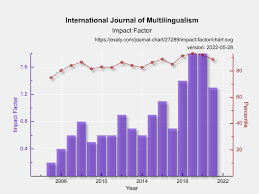Knowing Two Languages Can Postpone Dementia

Bilingualism May Postpone Dementia
What is Dementia?
Dementia is a catch-all term for any neurological disorder which leads to the degradation of cognitive faculties. These disorders may have different root causes, but they all lead to the same series of symptoms, resulting from neurological damage to brain cells:
Gradual Loss of Communications Skills
Gradual Loss of Memory
Significant Attention Span Issues
Slow Decline in Visual Perception
Of all forms of Dementia, Alzheimer's is the most common, affecting more than 5 million people. Alzheimer's disease is one of the leading causes of death for men and women over 65, with only four more common causes of death.
Canadian Dementia Study
Recently, a new study was released in Neuropsychologia regarding the connection between multilingualism and Dementia risk. This study was performed by researchers from the Baycrest Centre for Geriatric Care, a clinical facility in Toronto specializing in research and care for the elderly. The division of the Baycrest Centre responsible for this research was the Rotman Research Institute, and the head of the research team was Doctor Ellen Bialystok.
In this study, Dr. Bialystok and her team gathered a group of 184 recruits from the immediate vicinity of Toronto. All the participants recruited were suffering from Dementia, and the researchers were concerned with both the age at which psychological deterioration began to occur and the number of languages the participants could speak. They found that individuals that knew more than one language fluently lived four years longer before experiencing symptoms than their monolingual counterparts.
Impact of Bilingualism on Dementia Symptoms
In this particular study, women who only spoke one language started to show signs of Dementia at an average age of 71.9. Men showed symptoms slightly earlier, at the average age of 70.8. On the other hand, men and women who knew more than one language took longer to become symptomatic. Women that were multilingual started to show signs of Dementia at an average age of 75.1, and men started to show signs at an average age of 76.1.
The average, when only taking age into account, was 4.1 years. The results of this study were statistically significant, providing evidence that multilingual individuals took longer to develop Dementia symptoms on average.
Dr. Bialystok explains that she hypothesized that multilingualism would have a positive impact on neurological health with regard to Dementia, but she was surprised that the difference was so significant. She says that when she first saw the results of the study, she was absolutely floored because the hypothesis was so clearly demonstrated.
Neurological Benefit of Bilingualism and Multilingualism
Based on the results, Dr. Bialystok further hypothesizes that the neurological benefit of multilingualism seems to stem from understanding how to speak and communicate in multiple languages and is not related to other factors associated with communication, such as proper grammar or the way that the language was learned. In order to experience the neurological benefit, you simply have to know two language systems simultaneously.
Dementia Benefits Solely the Result of Knowing More than One Language
Based on prior research and the results of this particular study, the research team came to the conclusion that the neurological benefits of multilingualism are not the result of other potentially related factors, such as immigration history, cultural inheritance, occupation, or education level. In fact, in this particular set of participants, the individuals that spoke a single language tended to be the most highly educated, but this did not seem to impact the significance of the results.
The Importance of this Dementia Study
Another research team member, Fergus Craik, explains that this study is important because it highlights how particular lifestyle circumstances can impact cognitive and neurological health later in the lifespan. Although there is no evidence that multilingualism has the ability to prevent Alzheimer's and Dementia, it clearly defers the onset of symptoms, which gives patients the opportunity to enjoy a few more years in good neurological health.
Scottish Study Examines Indian Dementia Patients
In a second, similar study, individuals that speak multiple languages have also been shown to first display symptoms of Dementia and Alzheimer's later in life. The results of this study were similar to the results of the Canadian study. In this study, patients lived slightly longer before experiencing Dementia symptoms, an average of 4.5 years longer.
This study was released in the academic journal, Neurology. The lead researcher and author of the study were Doctor Thoman Bak, and the study was financed by the University of Edinburgh.
Thus far, this study is the largest ever performed to assess the effects of multilingualism on Dementia. Many previous studies focused primarily on Alzheimer's disease, but the authors hypothesized that the benefits of multilingualism would also apply to any elderly patient suffering from Dementia, even Frontotemporal, and Vascular Dementia.
Psychological Requirements for Multilingualism are Significant
Doctor Bak explains that multilingual people use their brains in a unique way, unlike individuals who only speak one language. It takes a significant amount of psychic energy to seamlessly be able to choose and speak a particular language when you have multiple languages at your disposal. It relies on the brain's ability to be able to accurately choose the right language for the circumstances while also suppressing the brain's ability to communicate in the second language.
This special skill gives the brain a unique form of exercise that is not easily replicated through other means if it can be replicated at all. Knowing two or more languages gives certain locations in the brain a lot of extra stimulation that isn't afforded to people who speak only one language.
The name of the research piece is “Bilingualism Delays Age at Onset of Dementia, Independent of Education and Immigration Status.” Although this study was performed under the guidance and stewardship of the University of Edinburgh, the patients were from a location far from Ireland, in Hyderabad, India.
Why Choose Hyderabad?
Hyderabad is a fantastic location for studying the impact of multilingualism because Hyderabad is a multicultural hotspot in which multiple languages are all active in the same area, and most residents of the city speak multiple languages no matter how educated they are or what class they are brought up in.
Dementia Study Specifics
Researchers evaluated 648 subjects from Hyderabad who all suffered from Dementia. The average age of the patients was 62.2 years, and a bit more than half of the patients were multilingual.
The researchers in this study found similar results to the Canadian study: Individuals that were multilingual took 4.5 years longer to develop Dementia  than their monolingual counterparts. This 4.5-year span persisted even when taking into account education level. Even participants that never received a day of formal education experienced the benefits of multilingualism.
than their monolingual counterparts. This 4.5-year span persisted even when taking into account education level. Even participants that never received a day of formal education experienced the benefits of multilingualism.
In order to assess when patients started to experience signs and symptoms of Dementia, the researchers talked to caretakers and family members, asking them when the subjects started to show signs of degradation. For patients that only spoke one language, symptoms began to appear at 61.1 years of age. For patients that spoke multiple languages, symptoms did not appear until 65.6 years of age.
Hyderabad is a Cultural Melting Pot
Another reason why Hyderabad was selected as an ideal location to perform this study was that the multicultural aspect of the city is not the result of immigration but the result of genuine multiculturalism that has persisted over time. In most studies that had been previously performed, most participants were immigrants who learned another language due to moving to a new location. As a result of this, it was difficult to account for variables such as lifestyle, diet, and ethnicity.
The majority of the participants of this study were hereditary members of Hyderabad, with lineages that go back for generations. Some of the most common languages in the city are Dakkhini, Telugu, and Hindi.
This study provides definitive proof that the protection against Dementia afforded to multilingual patients is not the result of extenuating factors but definitively a result of knowing more than one language.
Knowing More than Two Languages No Better than Only Knowing Two
Interestingly, the benefits of being multilingual were no greater than being bilingual. Simply being able to communicate in two or more languages is enough to experience maximum benefit. Another important point is that it is not important to be fluent in multiple languages but simply to be able to communicate with others effectively.
Hyderabad provides a unique way to look at and understand the effects of multilingualism in the rawest sense. In many countries, especially in the West, second languages are taught rather than simply learned. In India, there are so many dominant languages in a small area that it is very easy to learn two or more languages passively in one's everyday life.
Education Not a Factor in Dementia Benefits
One subset of the participants in the study was completely illiterate, but the benefits of multilingualism were just as strong among those in this group as those that were highly educated. Multilingualism is not the result of class or education, or any other lifestyle factor. The benefits are purely the result of the unique mental exercise that comes with knowing and understanding more than one language.
Using Multiple Languages is Like Swimming
The lead researcher compared multilingualism to the act of swimming. Although many other physical activities are good for health, swimming simultaneously works every muscle in the body. The same seems to be true of bilingualism and the mind. There's just so much involved. You have to recognize and interpret two entirely different language systems. You also must understand the subtle cues and social norms that play simply in speaking a second language.
Stress Increases the Risk of Alzheimer's Among Women
A recent study provides evidence that stress negatively impacts cardiovascular health and increases the risk of experiencing Alzheimer's disease. One group that seems to be particularly at risk is middle-aged women. At this point, there is no causal evidence regarding why, but there is a definite positive correlation between mid-life stress and Alzheimer's Disease among female patients.
This study was developed at Swedish Gothenburg University by Lena Johansson, a member of the University's Institute of Neuroscience and Physiology.
There is a definite link between stress and Alzheimer's, as proven by Dr. Johansson's study, but there have not yet been studies that have sought to show exactly how strong mid-life stress is as a predictor of Alzheimer's risk, especially in comparison to other influences such as high blood pressure, smoking, diet, and poverty. All of these factors were controlled for in this study, but future studies will have to compare the relative impact of all of these different risks on general health.
The Results of this Alzheimer's Study Also Apply to Men
Johansson's study only examined middle-aged women, but there is no evidence that the results would be any different for men. Certain aspects of Alzheimer's and Dementia risk correlate with gender, but most risk factors have similar impacts on core risk based specifically upon gender.
Alzheimer's Study Data
The results of this study have been derived from a larger multipurpose study that began in 1968. At the time this study began, all of the women were 38 years or older. Among these participants, eight hundred were regularly evaluated with regard to psychological health and well-being a minimum of once every ten years until 2005.
Johansson and her research partners evaluated the data with regard to eighteen life events that tend to have a negative impact on well-being, including widowhood, divorce, and family illness, and how individual subjects responded to these life events.
In addition to compiling data related to stress, they also collected data regarding psychiatric evaluation and hospital records in order to determine which patients eventually developed Dementia. By the final year of the study, 153 of the 800 women experienced Dementia, and 104 of those cases were Alzheimer's Disease.
Stress and Dementia are Correlated
Researchers found a strong correlation between mid-life stress and Dementia. For every stress factor that the participants were experiencing in 1968, the potential for experiencing Alzheimer's disease by the end of the study increased by around twenty percent.
There was also a strong correlation found between extended bouts of distress and increased risk of Alzheimer's, without regard to the number of individual stressful events experienced.
No Evidence that Stress Directly Causes Alzheimer's
This study does not show that stress directly causes Alzheimer's but that it simply increases the risk of experiencing the condition. There is a significant chance that stress only heightens the impact of other factors, such as high blood pressure, and does not directly cause Alzheimer's in a vacuum.
In spite of this lack of direct correlation, there are still many that are incredibly optimistic with regard to the results of this study. A representative of the Rush University Medical Center, Robert S. Wilson, explains that this study is the strongest evidence thus far connecting psychological stress with Dementia and Alzheimer's. It will take more research to further illuminate that link, but the correlation is definitively there.
Deal with Stress to Delay Alzheimer's
Everyone responds to stress in their own way, but it appears that the general pressures of stressful life events impact all people similarly. There are numerous ways that chronic stress impacts health, wellness, and longevity, even if the stress is relatively minor. These stressors can affect any family, and it shows the importance of managing stress effectively to live a longer and healthier life.
However, this doesn't mean that people who experience these life events should fret too much. Stress is just one factor that contributes to Dementia and Alzheimer's, and not everyone that experiences a lot of stress goes on to develop these neurological conditions.
The important thing is to recognize how forces in your life like stress can affect your long-term health and that there are efforts you can take to minimize the effects and threat of chronic stress. In the end, the contribution that stress has on Dementia is likely less than other factors such as blood pressure and smoking.
Alzheimer's is an Epidemic Disease among the Elderly Today
Because of the prevalence of Alzheimer's, it is imperative that we understand why Alzheimer's occurs and what can be done to mitigate the risk and one day even perhaps cure the disease. The United States Centers for Disease Control and Prevention estimate that by the age of eighty-five, almost fifty percent of men and women may be suffering from the initial stages of Alzheimer's Disease.
Alzheimer's affects those who have Alzheimer's and those who love them. As life expectancies continue to increase, Alzheimer's will start to become more of a health hazard as more men and women live to an age where the disease becomes more prevalent.
This study demonstrates just one of many reasons why stress reduction should be a routine aspect of general healthcare, especially as men and women grow older.
Many people think of common stressors as inevitable life events that one simply has to struggle through, but there is growing evidence that life events can impact health years and decades down the road, and techniques for stress reduction such as psychiatric help, exercise, and talking about one's emotions will likely provide significant psychiatric benefits further down the line.
- 0001) What Is Andropause And How Can I Prepare For It? [Last Updated On: October 2nd, 2025] [Originally Added On: February 20th, 2021]
- 0002) Theories On Aging [Last Updated On: October 4th, 2025] [Originally Added On: February 21st, 2021]
- 0003) Sleep And Hgh Go Hand In Hand [Last Updated On: September 30th, 2025] [Originally Added On: February 22nd, 2021]
- 0004) L-carnitine Has The Ability To Preserve Mental Sharpness In The Elderly [Last Updated On: September 29th, 2025] [Originally Added On: February 23rd, 2021]
- 0005) What Are The Functions Of Human Growth Hormone? [Last Updated On: September 26th, 2025] [Originally Added On: February 25th, 2021]
- 0006) Hgh Sleep: Keep Young And Healthy With Deep Sleep [Last Updated On: September 25th, 2025] [Originally Added On: February 26th, 2021]
- 0007) Why Does Human Growth Hormone Production Drop As We Age? [Last Updated On: September 24th, 2025] [Originally Added On: February 27th, 2021]
- 0008) Growing Life Spans And Life Expectancy [Last Updated On: September 23rd, 2025] [Originally Added On: February 28th, 2021]
- 0009) Flax Seed Oil: Longevity And Anti-aging Medicine [Last Updated On: September 22nd, 2025] [Originally Added On: March 1st, 2021]
- 0010) Exercise To Increase Your Hgh Production! [Last Updated On: February 19th, 2025] [Originally Added On: March 2nd, 2021]
- 0011) Eighteen Suggestions For A Longer And Happier Life [Last Updated On: September 21st, 2025] [Originally Added On: March 3rd, 2021]
- 0012) Chemical Pollution Is Destroying Masculinity [Last Updated On: February 19th, 2025] [Originally Added On: March 4th, 2021]
- 0013) Bio-identical Hgh Hormone Replacement Therapy [Last Updated On: September 20th, 2025] [Originally Added On: March 5th, 2021]
- 0014) The Longevity Film: A review [Last Updated On: April 7th, 2025] [Originally Added On: October 25th, 2022]
- 0015) Blue Zone Cultures and Their Connection to Longevity [Last Updated On: February 20th, 2025] [Originally Added On: October 27th, 2022]
- 0016) The Prevalence and Impact of Endocrine Disrupting Chemicals [Last Updated On: February 11th, 2025] [Originally Added On: February 11th, 2025]
- 0017) Understanding Exercise's Role in Slowing Down Aging [Last Updated On: February 10th, 2025] [Originally Added On: February 12th, 2025]
- 0018) Understanding the Concept of Blue Zones [Last Updated On: February 16th, 2025] [Originally Added On: February 16th, 2025]
Word Count: 2527






